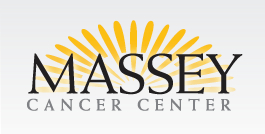Melatonin Supplementation for Cancer-related Fatigue in Patients Receiving Radiotherapy
| Status: | Active, not recruiting |
|---|---|
| Healthy: | No |
| Age Range: | 18 - Any |
| Updated: | 8/8/2018 |
| Start Date: | March 25, 2015 |
| End Date: | August 31, 2024 |
Melatonin Supplementation for Cancer-related Fatigue in Patients Receiving Radiotherapy: A Double Blind Placebo-Controlled Trial
This is a double-blind, placebo-controlled trial wherein subjects with breast cancer will be
randomized to receive either 20 mg oral melatonin or placebo the night before their first RT,
nightly throughout their RT, and for an additional 2 weeks following the completion of their
RT. After informed consent is obtained from eligible subjects, they will then be
electronically randomized on a 1:1 ratio to melatonin treatment or placebo. The subjects will
be stratified according to treatment duration (less than 3 weeks; equal to or greater than 3
weeks) and prior chemotherapy.
randomized to receive either 20 mg oral melatonin or placebo the night before their first RT,
nightly throughout their RT, and for an additional 2 weeks following the completion of their
RT. After informed consent is obtained from eligible subjects, they will then be
electronically randomized on a 1:1 ratio to melatonin treatment or placebo. The subjects will
be stratified according to treatment duration (less than 3 weeks; equal to or greater than 3
weeks) and prior chemotherapy.
Subjects will be randomized to receive either melatonin or placebo. Subjects will receive
20-mg oral melatonin or placebo the night before their first RT treatment, each night
throughout the course of RT treatment, and for 2 weeks following the completion of RT.
Patients with localized breast cancer will receive standard-of-care RT as determined by the
treating physician. The RT regimens include: (1) 1 week of APBI; (2) 3-4 weeks of an
accelerated hypofractionation RT schedule; and (3) 6-8 weeks of a standard RT schedule. No
additional concomitant medication or supportive care guidelines are required for this study.
Subjects will receive daily melatonin or placebo beginning the night before their course of
RT and for an additional 2-week period that extends beyond the conclusion of their RT.
Subjects will be given a Study Diary to record their use of study medication. Patients will
be followed for 60 days after removal from the study treatment or until death, whichever
occurs first. Patients removed from the study treatment for unacceptable AEs will be followed
until resolution or stabilization of the adverse event.
20-mg oral melatonin or placebo the night before their first RT treatment, each night
throughout the course of RT treatment, and for 2 weeks following the completion of RT.
Patients with localized breast cancer will receive standard-of-care RT as determined by the
treating physician. The RT regimens include: (1) 1 week of APBI; (2) 3-4 weeks of an
accelerated hypofractionation RT schedule; and (3) 6-8 weeks of a standard RT schedule. No
additional concomitant medication or supportive care guidelines are required for this study.
Subjects will receive daily melatonin or placebo beginning the night before their course of
RT and for an additional 2-week period that extends beyond the conclusion of their RT.
Subjects will be given a Study Diary to record their use of study medication. Patients will
be followed for 60 days after removal from the study treatment or until death, whichever
occurs first. Patients removed from the study treatment for unacceptable AEs will be followed
until resolution or stabilization of the adverse event.
Inclusion Criteria
1. Ambulatory outpatients with breast (including ductal carcinoma in situ [DCIS]) cancer.
2. Patients to be treated with RT for curative intent.
3. Women ≥18 years of age.
4. ECOG performance status <3 (Appendix 4).
5. Hemoglobin ≥ 9 g/dL
6. Either post-menopausal, surgically sterilized, or willing to use an acceptable method
of birth control during study treatment and for 3 months afterwards.
7. Subjects who are currently taking melatonin must discontinue melatonin for 5 days
before enrolling in the study.
8. Ability to understand and the willingness to sign a written informed consent document.
Exclusion Criteria
1. Fatigue brought on by conditions other than cancer such as (the indicated tests are
required only if that mechanism of fatigue is suspected):
- uncontrolled hypothyroidism (TSH >10 IU)
- hypercalcemia (calcium >11 mg/dL) Ca = SerumCa + 0.8 * (NormalAlbumin -
PatientAlbumin)
- decompensated congestive heart failure
- chronic obstructive pulmonary disease requiring oxygen replacement
2. Patients with a creatinine clearance <30 mL/min
3. Aspartate aminotransferase (AST) > 3X upper limit of normal (ULN)
4. Alanine aminotransferase (ALT) > 3X ULN
5. Bilirubin > 1X ULN
6. Use of systemic steroids, or other pharmacological agents such as methylphenidate for
cancer-related fatigue
7. Current use of American ginseng, remelteon, or warfarin.
8. Depression ≥ grade 2 (CTCAE v4.0)
We found this trial at
1
site
401 College Street
Richmond, Virginia 23298
Richmond, Virginia 23298
(804) 828-0450

Principal Investigator: Egidio Del Fabbro, MD
Phone: 804-828-9909
Virginia Commonwealth University Massey Cancer Center Founded in 1974, VCU Massey Cancer Center is a...
Click here to add this to my saved trials